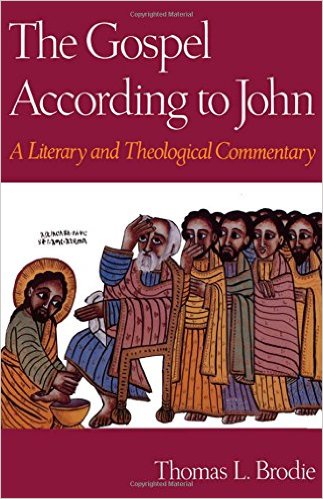Hope you commenters have been behaving yourselves this past week while I’ve been awol. Looks like Tim’s not been around either. I have a lot to catch up on, but hopefully back into posting anon.
2016-06-28
cat’s been away

Musings on biblical studies, politics, religion, ethics, human nature, tidbits from science

Hope you commenters have been behaving yourselves this past week while I’ve been awol. Looks like Tim’s not been around either. I have a lot to catch up on, but hopefully back into posting anon.


How do classicists determine if a figure appearing in ancient records actually existed? Do they use the same methods as biblical scholars who tell us certain persons in the Bible are historical and others not?
In this post and another I will look at questions classicists ask about two ancient philosophers, Demonax and Apollonius of Tyana, and the methods they use to answer those questions, at the same time comparing those questions and solutions with those applied by biblical scholars to Jesus and the Gospels. I suggest the very different ways of answering the similar questions highlight the fundamentally ideological character (i.e. religious bias*) of historical Jesus studies.
 Was there a historical Demonax?
Was there a historical Demonax?How can there be any doubt? After all, we have a first hand account of the witty philosopher Demonax (said to have lived 70 CE to 170 CE) by his student, Lucian (125 to 180 CE). Lucian begins his biography of Demonax thus:
It was in the book of Fate that even this age of ours should not be destitute entirely of noteworthy and memorable men, but produce a body of extraordinary power, and a mind of surpassing wisdom. My allusions are to . . . the philosopher Demonax. I saw and marvelled at [him], and with [him] I long consorted. . . .
I am to write of Demonax, with two sufficient ends in view: first, to keep his memory green among good men, as far as in me lies; and secondly, to provide the most earnest of our rising generation, who aspire to philosophy, with a contemporary pattern, that they may not be forced back upon the ancients for worthy models, but imitate this best–if I am any judge–of all philosophers. (my bolding in all quotations)
If an author says he knew Demonax personally and over an extended time how is it possible for anyone to reasonably doubt his historical existence! Further support for the argument for historicity is that Lucian tells readers Demonax met an array other notable historical persons.
Yet there are indeed doubts among classical scholars about the existence of Demonax. Are classicists, then, a hyper-sceptical lot compared with historical Jesus scholars?
The historicity of Lucian’s account has often been questioned, although most scholars today would agree with K. Funk’s arguments for historicity in his study of the Vita published in 1907. Yet, there still exists some understandable scepticism in this regard. Diskin Clay, for example, makes the following non-committal statement in a fairly recent article:My purpose in this treatment of Lucian’s Demonax is not to mount an argument against the historicity of the great Athenian philosopher. In the course of this discussion it will become apparent that I would not add the name of Demonax to the history of philosophy in the second century AD, nor would I remove it from the histories already written. (Searby, D.M. 2008. “Non Lucian Sources for Demonax”, Symbolae Osloenses 83, p. 120)
Do classicists set such a high bar for historicity that if applied across the board then most ancient persons we know of would have to be erased from the history books? Surely that would seem unlikely.
Why would Lucian make up person supposedly known to his own generation? Would not such an attempt meet with protest from his peers who knew better?
Those are the sorts of questions biblical scholars sometimes raise when asked about the historical existence of Jesus. So how could classicists have any doubt about Demonax when confronted by an account of his life by his very own student? Continue reading “If Biblical Scholars Were Classicists”


Or you can read the original German language version on Herman Detering’s site:

Bart Ehrman puts up a pay wall barrier to his blog posts so I have not seen his full article but the teaser he makes public — Why Paul Persecuted the Christians — does not encourage me to want to see more.
Questions I would suggest be posed to him by those who are privileged financially to be able to donate to a charity of Bart’s choosing (or privileged enough to donate over and above what they already donate elsewhere) as well as interested enough:
It is a shame to see a scholar with a reputation for secular critical nous appear to limit his analysis (analysis that is presumably shared without charge, or paid for ultimately by taxpayers, in the professional journals, yet that he only gives to the affluent — who are presumably also taxpayers — if they donate again to his own preferred charities) to the narrow range of sources and assumptions that are approved by the faith-dominated majority of his field.


Richard Sakwa, Professor of Russian and European Politics at the University of Kent, scares me. He compares in Frontline Ukraine the current international tensions over Ukraine with those over the Balkans prior to World War 1. He further compares the dynamics between NATO/”Wider Europe” and Russia with those between Western Europe/UK and Germany prior to World War 2.
On the one hundredth anniversary of World War I and the seventy-fifth anniversary of the start of World War II, and 25 years after the fall of the Berlin Wall in 1989, Europe once again finds itself the cockpit of a great-power confrontation. How could Europe have allowed itself to end up in this position, after so many promises of ‘never again’? This is the worst imbroglio in Europe since the 1930s, with pompous dummies parroting glib phrases and the media in full war cry. Those calling for restraint, consideration and dialogue have not only been ignored but also abused, and calls for sanity have not only been marginalised but also delegitimated. It is as if the world has learned nothing from Europe’s terrible twentieth century. (Sakwa, R. 2015, Frontline Ukraine: Crisis in the Borderlands, I.B. Taurus, London. p. 1, bolding mine in all quotations)
Sakwa continues:
The slew of books published to commemorate the start of the Great War reveals the uncanny similarities with the situation today. The war cost at least 40 million lives and broke the back of the continent, yet in certain respects was entirely unnecessary and could have been avoided with wiser leadership. If key decision makers had not become prisoners of the mental constructs that they themselves had allowed to be created, and if the warning signs in the structure of international politics had been acted on, then the catastrophe could have been averted. The assassination of Archduke Franz Ferdinand and his wife in Sarajevo on 28 June 1914 could well have remained a localised incident if Europe had not already been poised for conflict. (p. 1)
Those are disturbing words.
Europe in 2014 has once again become the crucible of international conflict, harking back to an era that has so often been declared to be over. Today, Ukraine acts as the Balkans did in 1914, with numerous intersecting domestic conflicts that are amplified and internationalised as external actors exacerbate the country’s internal divisions. (p. 3)
So far I have only read the first two chapters but I read them while the news was hailing as historic the rise and rise of Hillary Clinton towards the White House. And that makes the insights and warnings of Sakwa’s book even more scary. Sakwa documents Hillary Clinton’s attitude towards Russia as epitomizing the worst of the blindly destructive and culpably foolish that beset the leaders who stumbled into war in 1914.
I found Sakwa’s description of Ukraine, both historical and contemporary, most enlightening. I had not grasped just how deep-seated are the roots of the divisions in Ukraine that we are now witnessing, or how ancient is some of the puerile and fascist sounding anti-Russian talk coming out of Ukraine’s leaders today. Nor had I realized how equally ancient are the voices of pluralism seeking partnership with Russian and other Slav peoples.
Most depressing is the way the EU has tied itself to advancing the very divisions and conflicts in Europe that it was originally founded to obliterate. There is a pattern expressed in the books I have been reading. Afshon Ostovar in Vanguard of the Imam shows how the Iranians in response to 9/11 were offering much practical information and assistance to the United States to enable them to locate and capture the al Qaeda and Taliban targets they most wanted, but how the US rebuffed these efforts because they came from Iran. Sakwa shows the same pattern of Western rejection of anything coming from an increasingly demonised Russia.
In this context, here is some of what Sakwa tells us about Hillary Clinton’s views on Russia:
A very different approach was adopted by Hillary Clinton as Secretary of State in President Barack Obama’s first administration from 2009 to 2013. In her memoirs Hard Choices she stresses US global leadership and the country’s commitment to democracy and human rights, which is hardly surprising, but more disturbing is the harsh inability to understand the logic of Russian behaviour. As long ago as 2008, during her failed presidential bid, Clinton asserted that Putin, as a former KGB agent, ‘doesn’t have a soul’, to which Putin riposted that anyone seeking to be US president ‘at a minimum […] should have a head’. She interpreted actions in support of independent Russian political subjectivity as an aggressive challenge to American leadership, rather than the normal expression of great-power autonomy in what Russia considers a multipolar world of independent nation states. She takes a consistently hawkish view of the world, urging Obama to take stronger action in Afghanistan, Libya and Syria, but when it comes to Russia her views are particularly harsh and unenlightened. She considers Putin a throwback to a nineteenth-century world of zero-sum realpolitik, intent on rebuilding the Russian Empire through Eurasian integration. Through this prism, she interprets Russian actions in Georgia in 2008 and in Crimea in 2014 as part of an aggressive strategy, rather than as defensive reactions to perceived challenges.
. . . Her Cold War stance is reflected in her parting injunction to Obama that ‘the only language Putin would understand’ is ‘strength and resolve’. (p. 33)
Continue reading “Sleepwalking once again into war, this time nuclear”

A place to discuss questions relating to biblical questions that are not covered in posts on this blog is at Biblical Criticism & History Forum. Check it out. It’s a pretty comprehensive site. I sometimes drop in with a point of view or response to others.
I am sure there must be others around. I have not been to serious academic discussion lists for a while now but I think some of those also allow amateurs to join and occasionally raise questions.
There are also many blogs run by biblical scholars who would be happy to discuss a range of questions.
And there is of course Rene Salm’s Mythicist Papers but I suspect Rene would also appreciate comments and questions relating to the topics of his posts.
If you know of any sites of interest then do add them in the comments below.

 What on earth was God thinking?
What on earth was God thinking?
When is a female a female? And when is a male a male? These are the questions that scientists continue to ponder after the latest research on an Australian lizard that reverses its sex when exposed to high incubation temperatures.
The study shows central bearded dragons (Pogona vitticeps) that are born with male chromosomes, but can lay eggs, have other strange characteristics.
“A bearded dragon can have male sex chromosomes but be a functioning female. Yet it can be more male-like in the way it looks, in its temperature and in its behaviour. They are more male-like than the actual males,” Professor Shine said.

Cult deprogramming might sound extreme so first a wise word I wish I had taken on board some time ago:
Bear in mind the difference between an actual cult and a cult following.
There’s a big difference between Bernie Sanders, Donald Trump, and Jim Jones, and Charlie Manson, and David Koresh, Shoko Asahara.
It was not a wise choice of words when I described many of Acharya S’s followers as “cult-like” in their thinking. My words were construed to mean that I was saying they themselves constituted a cult despite my efforts to explain otherwise. But in reality that was only one of my many sins in their view and I am not sure following the points below would have made any difference at all to the animosity they continue to have towards me. Still, not following the points below is an absolute guarantee that one’s efforts to “deprogram” a person with “cultish” type thinking will fail.
The points and the quotations are all taken from David Feguson‘s article, Cult Deprogrammer: Here’s How to Stage an Intervention for Your Trump-Supporting Friend on Alternet. The article addresses Trump followers but I’ve added a tilt towards HRC in my own title. That was my attempt to make the following points more general. They apply the best of times to any communication attempting to persuade someone to think differently.
How does one approach someone who comes across as “stubbornly resistant to facts” and blind to an “idol’s” hypocrisy?
It is important to frame your intervention as an act of caring and support. Otherwise, the person will feel that they have been ambushed, and they will go on the defensive.
Continue reading “6 Tips for Deprogramming Trump followers (and Clinton’s? and Others….)”

 Here’s a little comment I just left at another discussion forum. Thought it might be of interest to a few readers here.
Here’s a little comment I just left at another discussion forum. Thought it might be of interest to a few readers here.
The question being addressed is, Did Jesus Baptise people?
The passage under discussion is John 3.22-4.3
[22]After this Jesus and his disciples went into the land of Judea; there he remained with them and baptized.
[23] John also was baptizing at Ae’non near Salim, because there was much water there; and people came and were baptized.
[24] For John had not yet been put in prison.
[25]Now a discussion arose between John’s disciples and a Jew over purifying.
[26] And they came to John, and said to him, “Rabbi, he who was with you beyond the Jordan, to whom you bore witness, here he is, baptizing, and all are going to him.”
[27] John answered, “No one can receive anything except what is given him from heaven.
[28] You yourselves bear me witness, that I said, I am not the Christ, but I have been sent before him.
[29] He who has the bride is the bridegroom; the friend of the bridegroom, who stands and hears him, rejoices greatly at the bridegroom’s voice; therefore this joy of mine is now full.
[30] He must increase, but I must decrease.”
[31] He who comes from above is above all; he who is of the earth belongs to the earth, and of the earth he speaks; he who comes from heaven is above all.
[32] He bears witness to what he has seen and heard, yet no one receives his testimony;
[33] he who receives his testimony sets his seal to this, that God is true.
[34] For he whom God has sent utters the words of God, for it is not by measure that he gives the Spirit;
[35] the Father loves the Son, and has given all things into his hand.
[36] He who believes in the Son has eternal life; he who does not obey the Son shall not see life, but the wrath of God rests upon him.
[John 4:1]
Now when the Lord knew that the Pharisees had heard that Jesus was making and baptizing more disciples than John
[2] (although Jesus himself did not baptize, but only his disciples),
[3] he left Judea and departed again to Galilee.
John 4:2 stands as a gauche contradiction to 3:22 — hence the question: Did Jesus himself baptize?
My response was to toss in an interpretation from the left field. It’s from Thomas L. Brodie’s commentary on John. His proposed interpretation references other passages, in particular the following:
John 1:33
And I knew him not: but he that sent me to baptize with water, he said unto me, Upon whomsoever thou shalt see the Spirit descending, and abiding upon him, the same is he that baptizeth with the Holy Spirit.
John 4:3-7
he left Judea and departed again to Galilee. He had to pass through Samaria. So he came to a city of Samaria, called Sychar, near the field that Jacob gave to his son Joseph. Jacob’s well was there, and so Jesus, wearied as he was with his journey, sat down beside the well. It was about the sixth hour.
There came a woman of Samaria to draw water. Jesus said to her, “Give me a drink.”
It is commonplace for scholarly interpreters to say that John 4:2 (explaining that Jesus did not baptize after all) is a later editorial insertion. A maverick view comes from Thomas Brodie who has a quite different perspective. Continue reading “Did Jesus Really Baptize — and If So, How?”


I have in the past argued that our canonical gospels are not really about the life and person of Jesus but rather they are a dramatization of core theological beliefs of the early Church. Jesus is a personification, a mouthpiece and a role constructed to play out this dramatization. One could say I have sided with Adela Yarbro Collins when she expresses doubts about the gospels really being biographies of Jesus when she writes:
With regard to the gospel of Mark at least, one may question whether the main purpose of the work is to depict the essence or character of Jesus Christ. (Collins 1990, p. 41)
The fundamental purpose of Mark does not then seem to be to depict the essence or character of Jesus Christ, to present Jesus as a model, to indicate who possesses the true tradition at the time the gospel was written, or to synthesize the various literary forms taken by the tradition about Jesus and their theologies. (Collins 1990, p. 44)
The gospel begins with a reference to Jesus Christ [son of God], not out of interest in his character, but to present him as God’s agent. . . . (Collins 1990, p. 62)
That was yesterday. Today I am being pressured to re-think that viewpoint. The reason is chapter 2, “Civic and subversive biography in antiquity” by David Konstan and Robyn Walsh in Writing Biography in Greece and Rome: Narrative Technique and Fictionalization, edited by Koen De Temmerman and Kristoffel Demoen. [In the interests of disclosure I must confess that this book cost me an arm and half a leg so one may suspect that I am motivated by a need to justify my extravagance by an over-willingness to be persuaded by its contents.]
Konstan and Walsh begin by proposing that there are two types of ancient biographies. (I’ll call them biographies even though that term carries more rigorous understandings of how one should write seriously about a life of a person than were applicable to their Greco-Roman counterparts. These ancient “lives” or “biographies” are usually called “bioi” (Greek) or “vitae” (Latin) to remind us of their often quite different attributes.)
These are the universally acknowledged great and good, the pillars of society, whose lives shine as exemplars for us all to emulate. They
highlight the virtues of their subjects, often great statesmen or military heroes who exemplify justice and courage, or else brilliant thinkers and writers, the philosophers and poets whose lives might serve as models . . . (Konstan and Walsh 2016, p.28)

 Let’s be sure we apply the same critical standard to the Gospels as we do to other ancient literature of the day. And let’s be sure we have a fair grasp of the wider Greco-Roman literature of the first and second centuries so we can improve our chances of making informed interpretations of the Gospels. And let’s do away with these apologetic arguments that the colorful and minute details in gospel narratives are sure signs of eyewitness testimony and therefore of historical reliability!
Let’s be sure we apply the same critical standard to the Gospels as we do to other ancient literature of the day. And let’s be sure we have a fair grasp of the wider Greco-Roman literature of the first and second centuries so we can improve our chances of making informed interpretations of the Gospels. And let’s do away with these apologetic arguments that the colorful and minute details in gospel narratives are sure signs of eyewitness testimony and therefore of historical reliability!
Professor Rhiannon Ash is the author of one of the many gems in the newly published Writing Biography in Greece and Rome: Narrative Technique and Fictionalization, edited by Koen De Temmerman and Kristoffel Demoen. Her chapter, “Never say die! Assassinating emperors in Suetonius’ Lives of the Caesars“, examines the range of techniques the Roman biographer Suetonius employed to add verisimilitude to create “the illusion of historical accuracy.”
Suetonius in the early second century wrote biographies of a dozen Roman emperors. Sometimes he would narrate details that apparently occurred behind closed doors (and that would consequently be unknown to anybody else), sometimes he wrote about a person’s private dreams foretelling the future, often he included supernatural prodigies and sensational personal details worthy of any tabloid press today. But at the same time he did want to be taken seriously and impress readers with the diligence of his research. Thus. . . .
he generally takes some trouble to deploy devices which invest each account with verisimilitude and contribute significantly to our sense of his own auctoritas as a researcher. (p. 205)
Accordingly Suetonius rarely passed up “a chance to enhance the credibility of his account” by means of:
Continue reading “Signs of Fiction in Ancient Biographies — & the Gospels”

See
Where did Islamic State come from, and what does it really want? By Eleri Mai Harris
It even includes an explanation of the apocalyptic beliefs of certain of the ISIS leadership, linking nicely to my previous post: